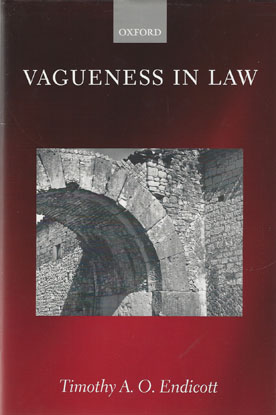
Vagueness leads to indeterminacies in the application of the law in many cases. This work responds to the challenges that indeterminacies pose to the theory of law and adjudication. It places controversies in legal theory in a new light, using arguments in the philosophy of language to offer an explanation of the unclarities that arise in borderline cases for the application of vague expressions.
But the author also argues that vagueness is a feature of law, and not merely of legal language: the linguistic and non-linguistic resources of the law are commonly vague. These claims have consequences that have seemed unacceptable to many legal theorists. Because law is vague, judges cannot always decide cases by giving effect to the legal rights and obligations of the parties. Judges cannot always treat like cases alike. The ideal of the rule of law seems to be unattainable.